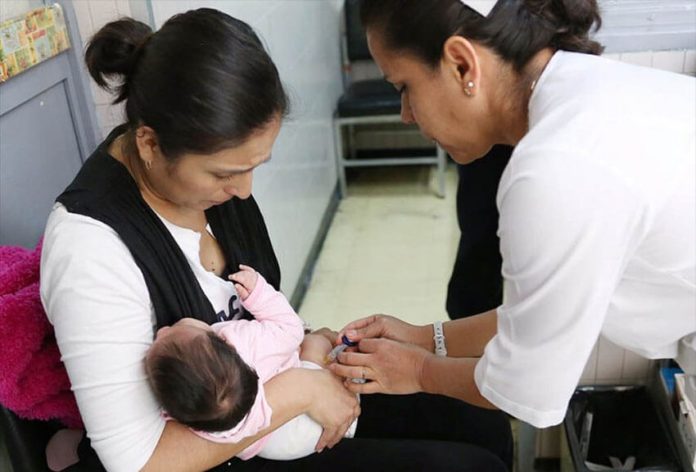Less than one-third of infants have had all their recommended vaccines, a situation that health experts warn could lead to outbreaks of diseases such as polio, measles and whooping cough.
The 2021 National Health and Nutrition Survey found that just 27.5% of one-year-olds and 31.1% of two-year-olds have had all six crucial vaccines. The recommended shots provide protection against a range of diseases including tuberculosis, hepatitis B, diphtheria, tetanus, whooping cough, polio, influenza, pneumococcal infections, rotavirus, measles, chickenpox and mumps.
Jaime Sepúlveda, a former deputy health minister who is now executive director of the Institute for Global Health Sciences at the University of California in San Francisco, attributed the low immunization rates among infants to a lack of vaccine supply.
The federal government has failed to guarantee supply because it hasn’t bought enough vaccines on the international market, he told the newspaper Reforma. There hasn’t been a shortage of childhood vaccines on that market, Sepúlveda said, attributing the problem to government incompetence.

“It’s very concerning because we’re seeing a resurgence of polio in African countries in addition to endemic disease in Afghanistan and Pakistan,” he said. “It’s even extended to New York now,” Sépulveda said, referring to a polio case detected in Rockland County last month — the first reported in the United States in almost a decade.
“When I had the [childhood] vaccination program under my care we had coverage above 94%,” he said, referring to the period he was deputy health minister in the 1988-94 government led by former president Carlos Salinas de Gortari.
“We had the fortune of eradicating polio from the national territory during the administration of [former health minister] Dr. Jesús Kumate,” Sépulveda added.
Miguel Betancourt, former president of the Mexican Society of Public Health, shares the view that the low vaccination rates are worrying because it means unvaccinated children — and adults — are susceptible to contagious diseases.
Low levels of vaccination coverage create fertile ground for the reemergence of diseases that authorities have worked hard to control, he said. Betancourt said that a measles outbreak in Mexico City two years ago was the result of low vaccination rates against that disease.
He said that vaccination rates among young children began to decline 15 years ago and the situation worsened during the coronavirus pandemic.
Citing information from the Mexican Vaccination Observatory, Betancourt said the low rates among infants are mainly due to a lack of vaccines at health care centers. The government didn’t buy enough vaccines or didn’t distribute them in a timely manner, he said.
With reports from Reforma
